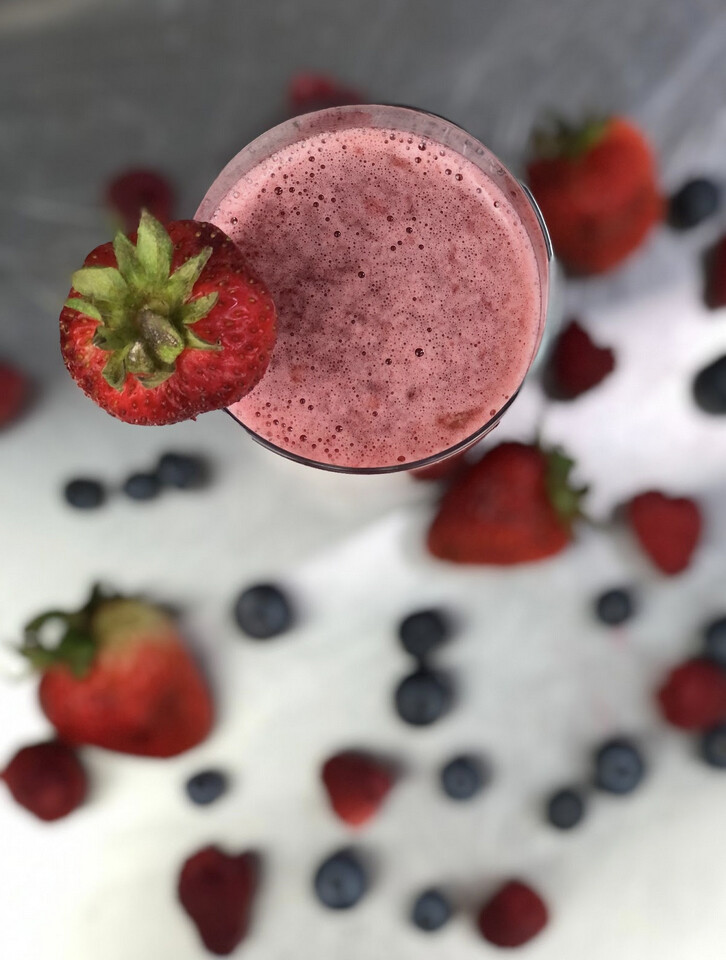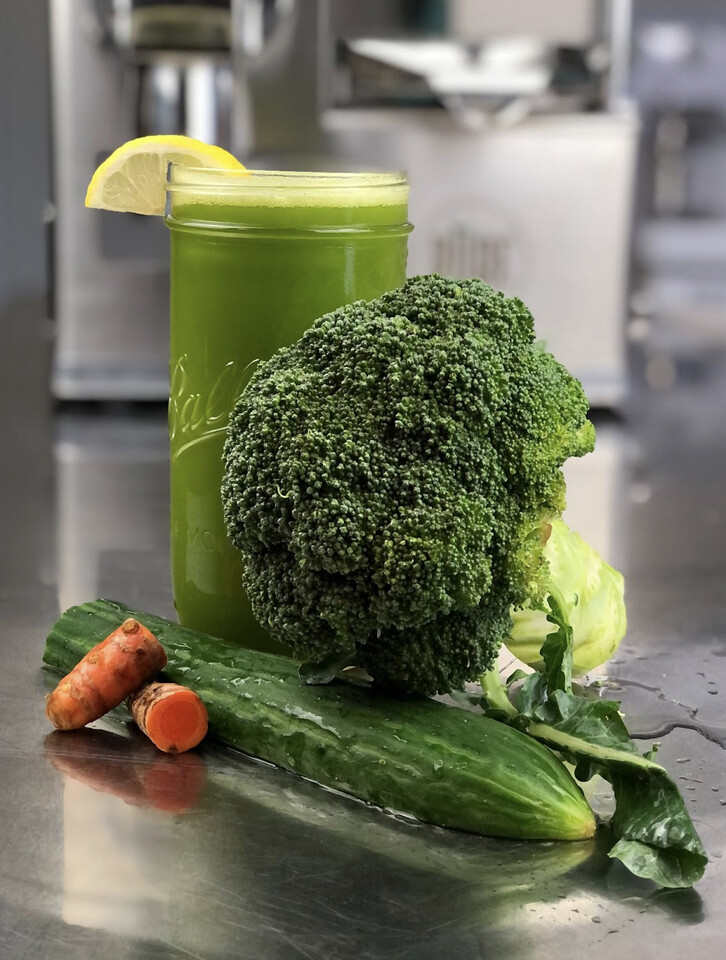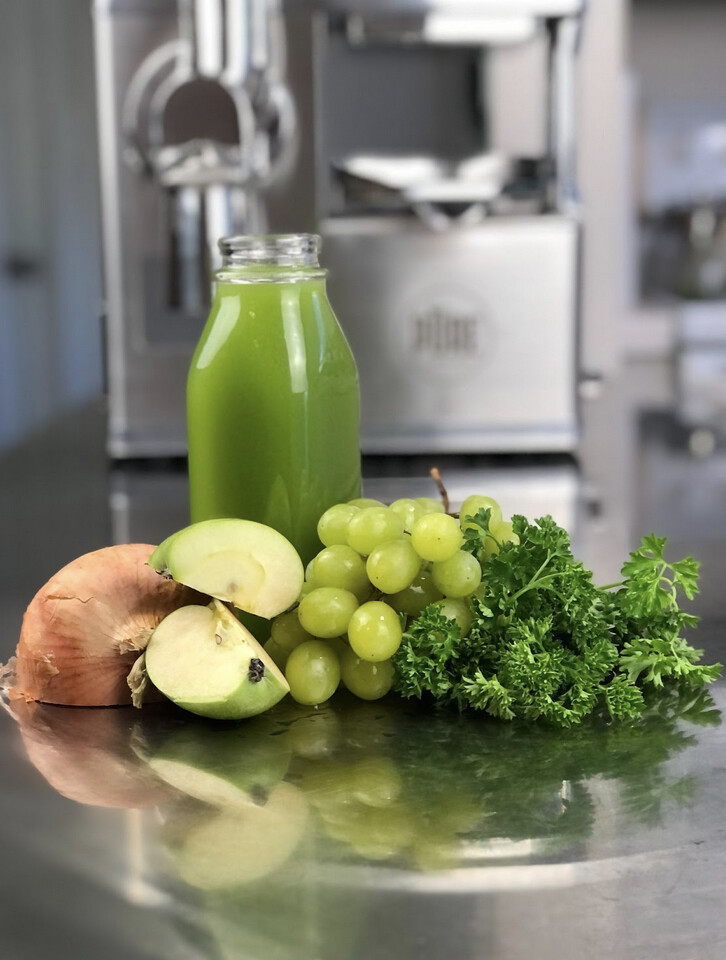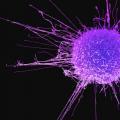By Gillian Ehrlich, DNP, ARNP and owner of Center for Healing Neurology

Our immune system is the system of bodily defense, and like any good militia, has regimens of front-line foot soldiers, and intelligence officers, and can receive external reinforcements (this is passive immunity from mom to baby and via vaccination). This system gets going while we are still in utero (https://www.ncbi.nlm.nih.gov/pmc/articles/PMC4707740/) and doesn’t stop until after our final breath. It is with us through thick and thin, through hardship and triumph, through childhood colds and chickenpox (or now through immunizations against the infectious diseases of childhood) and plays a role in the chronic diseases of adulthood like autoimmune disease, cancer, and even persistent infections like Long-COVID.
We used to describe the immune system’s functioning as distinguishing between ’self’ and ’non-self’ with the emphasis that our immune system would take out whatever wasn’t ‘us’, but it is waaaayyy more complicated than that. Our immune system must make good gut bacteria (‘not us’) welcome while disposing of defunct or cancerous cells (‘us’). Our immune system maintains surveillance all the time and periodically turns on an ‘action’ mode, like activating a regimen of the army, to neutralize any perceived threat– like when you swallow all those bacteria from chewing on the end of a pen.
What’s tricky is that the action mode has to be just the right amount of action, at the right time, for the right duration, and then cease. If our immune system is deficient, overactive, or confused, that’s when disease results. Our immune system is one of the oldest intelligence systems on the planet (https://www.ncbi.nlm.nih.gov/pmc/articles/PMC3805090/ and https://www.nature.com/articles/d42473-018-00172-3), and it is a dance like no other.
To truly understand the immune system, we have to know the first step is sensing our environment. There are two arenas to surveil. Our endogenous environment is the goings-on inside our bodies, including our organs, tissues, and cells. Our exogenous environment comes at us from the outside and includes the air we breathe, the water we drink, pollution, temperature, soil, dust and yes, you got it, food. In fact, everything we put into our mouths and swallow, be it Twinkies or kale (or Lego helmets if you’re my son’s neighborhood friend), gets the once over from our immune system.
All these elements (endogenous and exogenous) exist as molecules and groups of molecules which give us the information evaluated by the intelligence of the immune system- is this nourishing or a threat? If a threat, what type, severity, and duration of response is needed? When is it safe to turn down the immune system response? With the fast-paced screen-driven lives we lead these days, instead of getting the dark quiet of the night and the feeling of Earth under our feet to restore us, we are bombarded by light, and pollution (last year, research showed even in Yellowstone National Part, the air has microplastics! https://www.mdpi.com/2073-4441/13/3/264), and sound seemingly non-stop.

There’s a lot of sensory and physical information for our immune systems to process. It can get rushed, overwhelmed, confused, and then, unfortunately, misbehave, in its efforts to protect us. We see this clearly in the rise of chronic illness in the later half of the 20th century. Without intention and change, locally and globally (aka endogenously and exogenously), we cannot medicate ourselves out of this pickle.

One thing we can do, and we can do nearly immediately, is ensure that the information our immune system processes from our food is supportive, gauged as ’safe’, and actually helps the immune system to function by contributing the co-factors and nutrients that can balance the immune system.
And of course, cold-pressed juice is an ideal way to concentrate these intelligence packets of nutrients and deliver them most easily through the gut lining and into the bloodstream. When the body has the raw building blocks to make its necessary cells, it’s like the militia finally having the resources and capacity- the job gets easier. A healthy immune system diminishes the risk for chronic diseases including heart disease, diabetes, autoimmune disease, and cancer, and can help us live a healthier, more functional, life for longer years.
This month, we bring you sweet and simple juices that help feed your immune system and nourish its intelligence so it can relax against the thrum of modern life and any threatening infectious exogenous organisms that might be trying to make a home inside your system.
1. Dandelion, kale, lemon, celery, cucumber, pineapple:
Dandelion research documents in vitro studies showing anti-oxidative & anti-inflammatory activity via reduction of nitric oxide production and COX-2 expression (same target of ibuprofen) https://pubmed.ncbi.nlm.nih.gov/17949929/. Other research shows ‘strong’ anti-cancer activity which is one arm of a confused immune system- and it does this without side effects (and it can be a very sustainably harvested medicine!) https://pubmed.ncbi.nlm.nih.gov/17949929/. Kale is part of the brassica family which has so many well-known benefits. For the immune system, Kale can act to help increase the intelligence of the immune system, by suppressing negative inflammation but also increasing some aspects for appropriate immune activity; Kale also has vitamins C & E and contains sulfur (the smelliness of cooked brassicas) which supports antimutagenic activity https://pubmed.ncbi.nlm.nih.gov/23631258/. Celery has lutein (https://pubmed.ncbi.nlm.nih.gov/30806241/) and apigenin https://pubmed.ncbi.nlm.nih.gov/30995771/, both flavonoids with anti-inflammatory activity. Cucumber has amino acids including glycine, arginine, lysine, and aspartic acid which reduced oxidative stress, an anti-inflammatory effect https://pubmed.ncbi.nlm.nih.gov/29495578/. Pineapple, in addition to adding some sweet juiciness to this deep medicine recipe, has the incredible bromelain, which has a wide variety of immunomodulatory actions including anti-cancer, anti-inflammatory via IL6, TNFa reductions and increase of NK (natural killer) cells, and granulocyte-macrophage colony-stimulating factors. Bromelain also can clear blood clot fragments and many other actions https://www.ncbi.nlm.nih.gov/pmc/articles/PMC8067380/. Lemon (and lime & oranges in recipes below) all contain delta-limonene which research shows to have a very wide variety of biological activities including ‘antioxidant, antidiabetic, anticancer, anti-inflammatory, cardioprotective, gastroprotective, hepatoprotective, immune-modulatory, anti-fibrotic, antigenotoxic https://pubmed.ncbi.nlm.nih.gov/33289132/.
2. Elderberry, coconut water, hibiscus tea (or elixer), lime:
Elderberry has been used for millennia (https://www.herbsociety.org/file_download/inline/a54e481a-e368-4414-af68-2e3d42bc0bec#:~:text=The%20story%20of%20Sambucus%2C%20elderberry,26) and, despite elderberry containing well-documented beneficial phytonutrients called anthocyanins which have in vitro anti-viral activity, a recent April 2021 review of 1187 articles highlighted the dearth of evidence concludes elderberry might shorten the days and severity of the upper respiratory infection and might lower some cytokines (inflammatory markers) https://bmccomplementmedtherapies.biomedcentral.com/articles/10.1186/s12906-021-03283-5. Coconut water has (very sad!) rat research showing anti-inflammatory activity https://pubmed.ncbi.nlm.nih.gov/27366350/ and suggested even an anti-depressant effect (which can also be seen as an inflammatory state!) https://pubmed.ncbi.nlm.nih.gov/27377560/. Coconut water can be protective of liver cells https://pubmed.ncbi.nlm.nih.gov/32863888/. Hibiscus in vitro and animal studies shows cytokine reduction in TNFa, IL6, IL12 and inhibits TLR4 in the gut to reduce LPS-induced inflammation https://pubmed.ncbi.nlm.nih.gov/32540784/ and potentially nutritive to guts impacted by colitis https://pubmed.ncbi.nlm.nih.gov/32863888/. Limes also have the delta-limonene discussed above.
3. Mango, orange, carrot, horseradish:
Mangiferin, in Mangos, has been shown to have anti-inflammatory, immunomodulatory, anti-proliferative (anti-cancer), anti-oxidative among other impacts without any known side effects. It’s been used in ancient Ayurvedic and Chinese medicine for millennia. https://www.ncbi.nlm.nih.gov/pmc/articles/PMC4963872/. Mangos also have fisetin, a bioactive dietary flavonoid with similar properties also showing neuroprotective activity in cell culture and animal models of disease https://pubmed.ncbi.nlm.nih.gov/27671819/. Horseradish was shown in vitro studies to stave off cell death from oxidative stress https://pubmed.ncbi.nlm.nih.gov/30461310/. Orange extracts have documented anti-microbial activity https://pubmed.ncbi.nlm.nih.gov/27535797/. Carrots have so many nutrients and benefits and can even be stratified by root color (orange with carotenes, yellow with lutein, purple/red with lycopene and white without almost any carotenoids https://pubmed.ncbi.nlm.nih.gov/27999990/) in this research article discussing decreased oxidative stress, especially targeting inflammation in endolethial, cardiovascular and liver cells https://www.mdpi.com/2072-6643/12/2/337/htm#B7-nutrients-12-00337.

These juices together support the functioning of the immune system itself, but each juice also has at least one element included just to increase digestion & absorption (horseradish, lime & lemon) so these intelligence molecules can move across the gut lining and into the bloodstream.
This is exactly how we work with patients at the Center for Healing Neurology. We recognize that there are lots coming at you and that there are so many ways we can adjust our internal responses, starting at the core with the micronutrients and phytonutrients we choose to imbibe. You can find us at https://www.centerforhealingneurology.com/, reception@CenterforHealingNeurology.com, 206-379-1213.
Medical Disclaimer
PURE Juicer is a juicing company. We are not doctors or medical experts. All content and information on this blog and website is for informational and educational purposes only, does not constitute medical advice, and does not establish any kind of patient-client relationship by the use of this website.
Although we strive to provide accurate general information, the information presented here is not a substitute for any kind of professional advice, and you should not rely solely on this information. Always consult a professional in your area for your health questions and concerns prior to making any professional, legal, medical, financial, or tax-related decisions.







